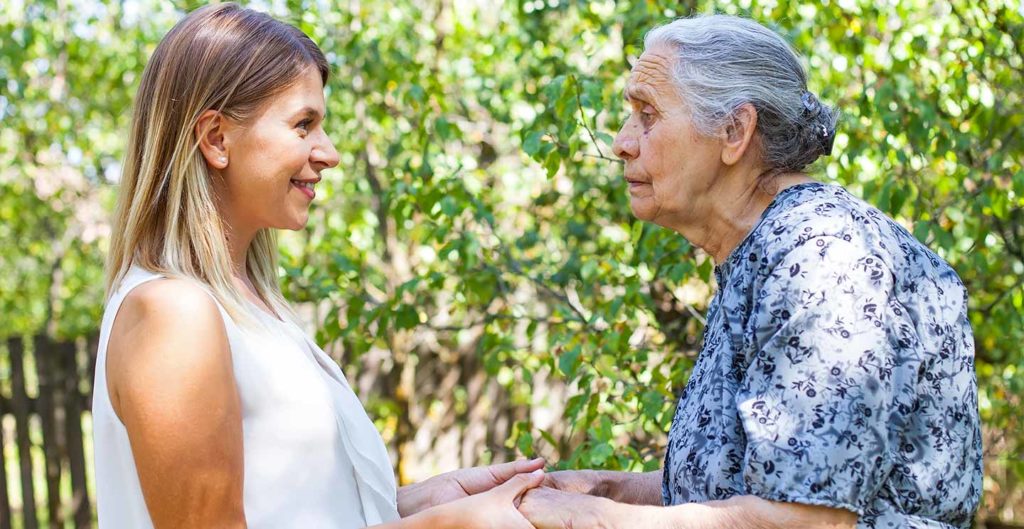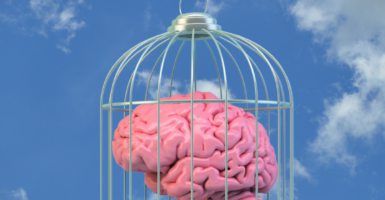Promising research now shows that we can reduce our risk of dementia through a combination of simple but effective brain healthy lifestyle changes. By identifying and controlling your personal risk factors, you can maximize your chances of lifelong brain health and take effective steps to preserve your cognitive abilities.
Dementia

Dementia is one of the biggest concerns many of us have as we get older. Dementia affects our memory, communication and the ability to carry out daily tasks.

Seven Principles for a brain healthy lifestyle
Dementia is a complex disease with multiple risk factors. Some, like our age and genetics, are outside our control. However, there are seven steps for a brain-healthy lifestyle that are within our control and three more that have been acknowledged recently.
Focusing on the seven pillars of brain health is crucial for maintaining cognitive function and reducing the risk of Alzheimer’s disease and other types of dementia. Incorporating these practices into daily life can contribute to overall brain health and well-being as well as slowing down the progression of the disease.
1: Regular exercise
According to the Alzheimer’s Research & Prevention Foundation, regular physical exercise can reduce our risk of developing dementia by up to 50%.
It can also slow down further deterioration in those who have already started to develop dementia. Exercise protects against dementia by stimulating the brain’s ability to maintain old connections as well as make new ones.
We should do 150 minutes a week of moderate exercise. Ideally, this should be a combination of cardio activities (to get our heart rate up) as well as strengthening exercises (to prevent muscle wastage whilst maintaining brain health). Swimming, walking and lifting light weights will help stave off dementia. It is also important to include balance and coordination exercise to help prevent falls. Exercises like yoga or using balance balls at home can be very helpful.
2: Social Interaction
Developing and maintaining a strong network of friends is critical in preventing loneliness and keeping the brain active. Research suggests that maintaining social connections and engaging in meaningful social activities can help to prevent or delay the onset of symptoms of Alzheimer’s disease and other forms of dementia. Social interaction not only provides emotional support but also stimulates the brain through conversations and shared experiences.
It’s important not to become isolated as we age.
Good starting points are:
- Volunteer
- Local clubs and social groups, visiting our local community centre
- Taking group classes
- Picking up the phone or using email and connecting to others via social networks such as Facebook.
- Make a weekly date with friends
- Get out, why not go to the park or a museum?
3: Healthy diet
- By adjusting eating habits, we can help reduce inflammation and protect our brain.
- Losing weight can protect your brain Extra pounds are a risk factor for Alzheimer’s disease and other types of dementia. A major study found that people who were overweight in midlife were twice as likely to develop Alzheimer’s down the line, and those who were obese had three times the risk.
- Cut down on sugar. Sugary foods and refined carbs such as white flour, white rice, and pasta can lead to dramatic spikes in blood sugar which inflame our brain. Watch out for hidden sugar in all kinds of packaged foods from cereals and bread to pasta sauce and low or no-fat products.
- Enjoy a Mediterranean diet. That means plenty of vegetables, beans, whole grains, fish and olive oil and limited processed food.
- Avoid trans fats ‘bad fats’ that can cause inflammation in our brain. Reduce consumption by avoiding fast food, fried and packaged foods.
- Get plenty of omega-3 fats. These foods can have a preventative effect. Food sources include cold-water fish such as salmon, tuna or mackerel. Fish oil supplement can also help.
Cook at home when we can as home-cooked food is lower in salt, sugar and additives and is fresher. - Reduce alcohol consumption and stop smoking.
4: Stay mentally active
Learning new things and challenging our brain helps to prevent dementia, “use it or lose it” we might say!
Activities involving multiple tasks or requiring communication, interaction, and organization offer the greatest protection. Try to learn something new such as a foreign language, practice a musical instrument, learn to paint or sew, or read. Interestingly the greater the novelty, complexity, and challenge, the greater the benefit.
If that all sounds too daunting, try a crossword puzzle, play board games such as Scrabble or Sudoku.
5: Quality sleep
It’s common for people with dementia to suffer from insomnia and other sleep issues but warding off insomnia is essential for brain health. Sleep has a restorative function which facilitates problem-solving, supports memory and regulates mood. Studies have shown the importance of uninterrupted sleep for flushing out brain toxins.
Suggestions for improving sleep include exercising more, removing digital devices from the bedroom, practising yoga, and going to bed and getting up at the same time each day. Create a relaxing bedtime ritual. Take a hot bath, do some light stretches, dim the lights.
Be careful about taking a nap in the day as although it may recharge our batteries it can affect our night-time sleep routine. If insomnia is a problem, consider eliminating napping or keep it to just 30 minutes.
6: Stress management
High levels of stress accelerate brain ageing while managing it effectively diminishes the impact on the brain. Several studies showed that people who were taught to see stress as a positive had lower cortisol levels and reported fewer symptoms of depression.
Manage your stress response with deep, abdominal breathing. Schedule daily relaxation activities. Keeping stress under control requires regular effort.
Make relaxation a priority, whether it’s a walk in the park, playtime with the dog, yoga, or a soothing bath. Make fun a priority. All work and no play is not good for your stress levels or your brain. Make time for leisure activities that bring you joy.
7: Vascular Health
Practices beneficial for your heart also positively impact your brain. Preserving cardiovascular health plays a vital role in safeguarding the brain and decreasing the likelihood of various forms of dementia, such as Alzheimer’s disease and vascular dementia.
Manage your blood pressure. Elevated blood pressure, known as hypertension, significantly heightens the risk of dementia. It can harm the delicate blood vessels within the brain regions responsible for cognition and memory.
What else can you do to reduce the risk and slow the progression of Dementia?
It’s crucial to reduce damage and therefore inflammation to the brain . As we age we need to improve and maintian our cognitive function. There are additional ways as to those mentioned above:
- Encourage use of Hearing Aids for hearing loss and protect ears from excessive noise exposure. Research indicates that using hearing aids can mitigate the risk of dementia to levels comparable to those with normal hearing. Mild hearing loss doubles dementia risk, medium hearing loss triples risk, and people with a severe hearing impairment are five times more likely to develop dementia.
- Reduce occurence of Depression which can increase in older age due to loneliness, loss of friends and medication. These can speed up dementia due to loss of social interaction and brain activity.
- Minimise risk of Falls that can lead to some form of brain injury or dementia. Half of people aged 80 and over, fall at least once a year. Over half of all fatal accidents suffered by people over 65 are due to a fall. Even small falls can cause serious injuries, loss of mobility and independence.
There are a number of national and local organisations that can help. The NHS website and Alzheimer’s Society websites are particularly helpful but also look at our list of local organisations in Oxfordshire, Buckinghamshire and Berkshire for additional support ‘What help can I get near me?’
Further information
Dementia
Prevention
Healthy ageing
More articles on Dementia
How do you talk effectively to someone with Dementia?
What is the best way to talk with someone with dementia? What are the main things you should avoid saying and how can you reassure them.
Continue readingWhat are the early signs of dementia?
Research shows there are more than 944,000 people in the UK who have dementia. 1 in 11 people over the age of 65 have dementia in the UK. The number of people with dementia is increasing because people are living longer.
Continue readingDementia care tips from experienced carers
Practical and helpful advice from experienced carers. What are the best bits of advice they wish they had known earlier.
Continue reading


